How to Build a House in Yucatan
Before we moved to Yucatan, we spent two years renovating a 70-year-old Spanish Revival home in central California. While the process was initially quite enjoyable, several unexpected problems resulted in a project that took twice as long to complete than originally planned. It also cost a considerable amount more than we had budgeted. In the end, we swore off another project and bought a fully renovated house in Merida’s Centro Historico for considerably less.
Oddly enough, it didn’t take long before we found ourselves engaged in the renovation of a smaller colonial house to use as an office. Perhaps we’re slow learners, or we just can’t accept defeat. Yet, contrary to our expectations, the project was completed quickly and on budget, despite the arrival of a major hurricane near the end of construction.
If you plan to renovate one of Merida’s lovely colonial homes, or to build a new home in the area, don’t be surprised if your experience is like either or neither of ours. No matter where you are in the world, building a house can be simple or complicated, easy or hard, a dream or a nightmare.
Having said all that, there are some things that you should consider if you are going to build or renovate in Yucatan. Many of our readers have asked our opinions on this subject, so we are offering them in this article. By no means is this meant to cover every possible situation, and we would hope that anyone who has something valuable to share will comment below.
1 - Buy Local
The most important thing we have learned is that if you are building in Yucatan, then choose a local architect and construction firm that has several years of experience in Yucatan. Select those who have a portfolio that matches your tastes and a list of satisfied references. There are many here speak English and their firms have at least one additional person on staff who speaks English as well. Several architectural firms over the years have developed their English-speaking skills in order to communicate better with English-speaking clients. The local architect school, FAUADY, graduates more architects every year and is a well-respected school in Mexico. There are no shortage of competent, honest and creative local architects.
Many foreigners who come to Yucatan learn the basics of renovation and remodeling. Depending on the scope of your project, they may offer a reasonable alternative to using a local firm. But remember that they do not have friends or family in the business, nor in government, and it is through this network of personal resources that the majority of Mexican business gets done.
Local architects and contractors are well connected and know the local markets and best practices. They will be able to advise you on construction and design techniques that work best in a tropical climate using materials that are most common to the area. They know the authorities in the government and the culturally accepted way to make things happen. In the long run, they will probably achieve the results you want at a better price.
2 - Get An Estimate
Ask for a design and presupuesto (estimate) from more than one firm. Most will include the price of this effort in the cost of renovation and/or construction. The ones who are not awarded the contract will charge a nominal fee, which depends on the scope of your project. This process will educate you on many levels and help you to choose the best design, engineering and construction options. It will also help you determine which firm is the best fit for your project and is the most responsive to your needs.
Always obtain a design and presupuesto BEFORE starting work. It may be impossible to have a design that is complete in every detail, but the closer it is to including all line items required to complete the project, the fewer unhappy surprises there will be later on.
Most firms we interviewed will charge as little as 10% and as much as 30% of your construction budget to design, administrate and supervise your project. The amount you pay is not always a case of “you get what you pay for,” so be sure to shop around.
3 - Follow The Rules
Follow the laws of Mexico. In the past, many construction projects in Mexico have been preformed by an informal labor force and paid abajo de agua (literally, under water, but it means 'under the table'). Many changes by federal and local governments makes this approach more risky than it used to be. Avoid using free-lance labor on large projects, and be sure that all workers are paid Social Security. Not paying Social Security (IMSS... pronounced "eemz") may save you a few pesos, but you are taking that money right out of the mouths of the families being supported by the (mostly) men working on your house. And if anyone gets hurt working on your project, IMSS has them covered medically so that it will not come out of your pocket. Those abañiles (workers) work hard for you... paying them Social Security on top of their daily wage is only fair.
4 - Get A Contract
Obtain a standard construction contract from your Mexican architect or Notaria (lawyer). At a minimum, it should limit your liability for budget overruns and may include incentives for completing the project to a schedule. The contract should also stipulate that all workers be paid Social Security by the contractor (not you). The contract must be signed by all parties and notarized to be enforceable. All of the firms listed below will enter into a standard construction contract.
5 - Do Your Accounting
If the intended use for your finished renovation or new construction is a rental property or other income-producing venture, you should contract with a lawyer and accountant to establish a Mexican corporation (SA de CV) or limited liability company (S de RL de CV). You will need to report your rental or other income and pay taxes, or risk penalties and fines from Hacienda, the Mexican IRS.
6 - Permitame
Always obtain all required permits before beginning work. Many colonial homes in Merida’s Centro are designated as "historic" and will require a permit and inspection by INAH (National Institute of Anthropology and History). If you fail to obtain the proper permits, your project can be suspended and you will have to pay fines to resume.
We used to provide a list of local architects and construction firms that we knew to be good. But the list of known and good architects and builders has grown, and now it feels as if any list is leaving someone out. Longer too is the shorter list of architects and builders with whom people have had bad experiences. We will leave the comments to this article so you can read about others' experiences and opinions. But recommending or not recommending someone has become fraught with peril and is no longer practical.
7 - Check References
Suffice it to say that you should ALWAYS check references before you go ahead with someone to design or build your house. There are plenty of good people here in Merida with references. You could also check with Profeco, the federal government organization that monitors consumer affairs. If a business person in Merida has had problems enough that someone has reported them to Profeco, you can find out. If you do not speak good Spanish, consider taking a Spanish-speaking friend with you to make the visit easier.
8 - Have Fun!
This might be the hardest thing to do sometimes. Building a house anywhere in the world is stressful and has been known to break up marriages. Try not to take out your frustrations on your architect, your builder, your workers or your partner. Look at this beautiful thing you have the privilege of creating and enjoy the process!!
Suerte!
Profeco
address: Calle 49 No. 479-A, x 54 y 56, Centro, 97000 Mérida, YUC, Mexico
phone: +52 800 468 4212
website: https://www.gob.mx/profeco




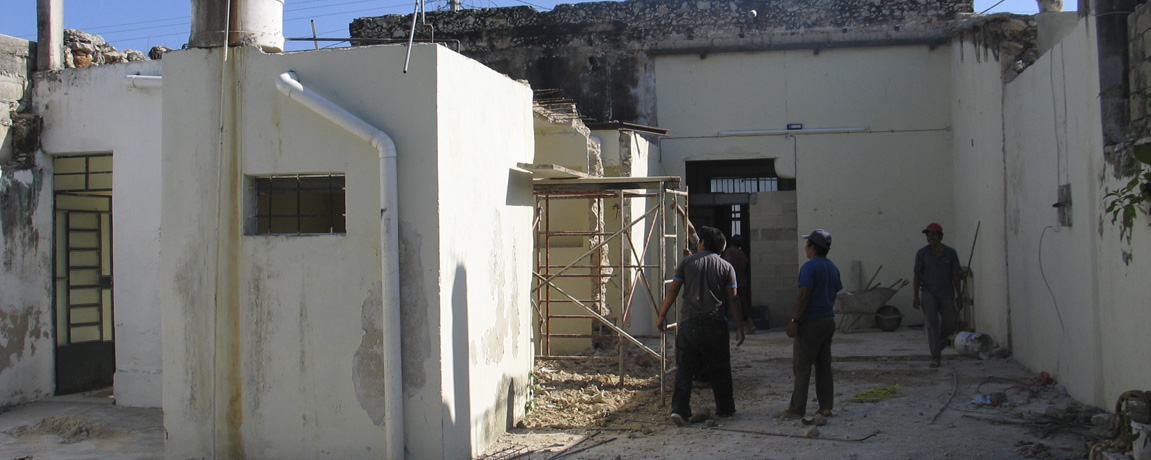


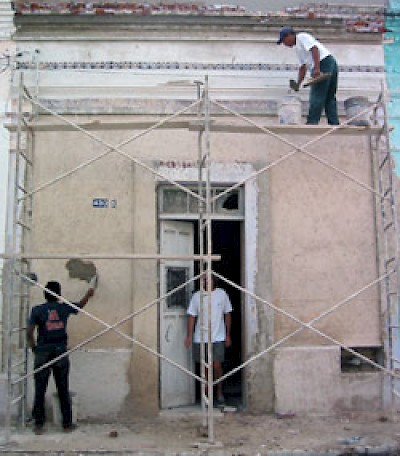
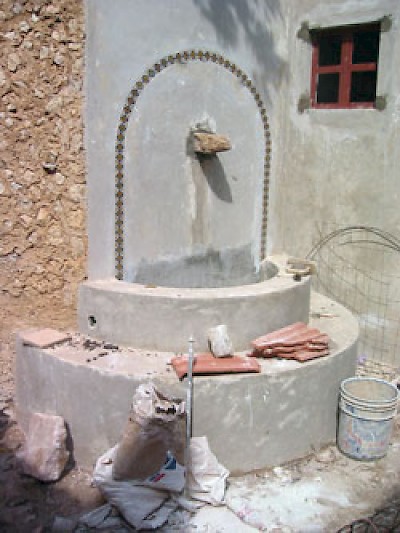
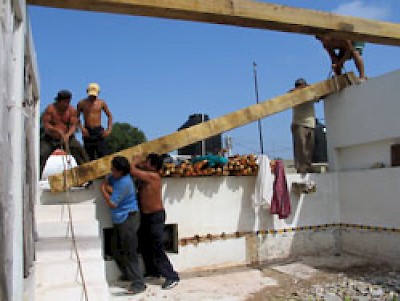
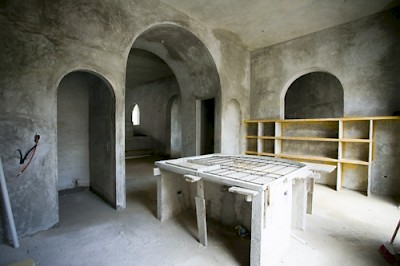
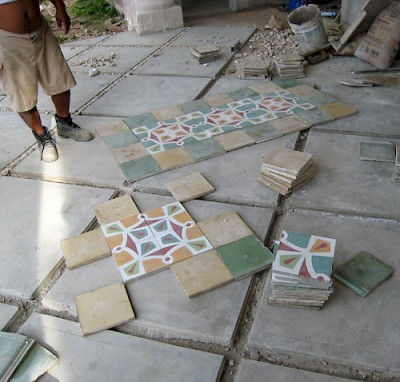
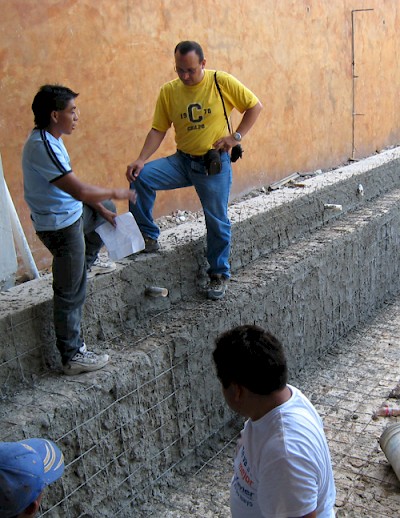
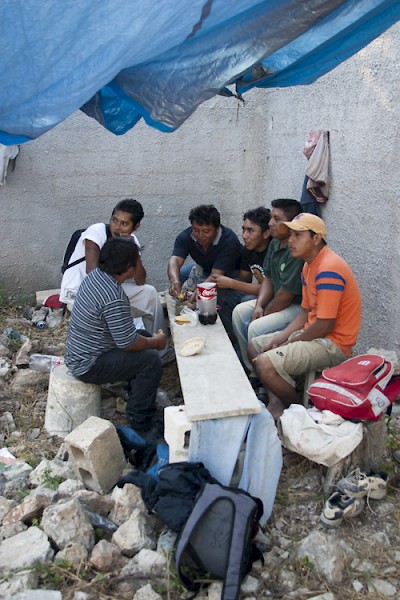

Comments
Working Gringos 16 years ago
We mean USD. Thanks for helping us clear that up.
Reply
media yucateca 16 years ago
I am getting to this forum late, but reading above, I have a question: When working gringos says "We have found that if you keep to local materials and building practices, and if you are not too flamboyant in your design, but you still want modern comforts like good water pressure and modern lighting, then a reasonable number is between $45 and $55 per square foot." - do they mean $45-55 USD or pesos?
Reply
Tulane Grad 16 years ago
Dear Working Gringos,
My name is Camilo Aldama-Chase and I am a thesis student at the Tulane School of Architecture. I will be graduating with a Masters in Architecture in May and will be in the job market at the end of the summer. I traveled to the Yucatan when I was younger and found it enchanting. I think it would be a great place to live and work.
I am an energetic young designer well versed in the areas of design/build and sustainable design. I looked at the websites of some the architects listed above and am in the process of sending out emails. I was wondering if you had any advice or good leads related to getting a job as an intern architect at a firm in Merida, Playa del Carmen or other coastal areas of Yucatan or Quintana Roo.
Reply
Nancy y Barry 17 years ago
Molly had asked a question concerning tile work and we are in the same boat. The house is in good shape but needs some TLC. The newer part of the house has cheap aluminum windows, some are louvered, and the floors in some area are very generic. What we need is someone who can do tile work, windows, doors and a few larger jobs. We would like to turn a room in the front of the house into a garage and add a pool to the backyard. Any information or recommendations would be greatly appreciated!
Reply
Harald Jezek 17 years ago
Ruddy, just a question: I suppose this phone# is in the US, correct ?
Can you be contacted via email ? If interested you can write directly to Claudia Cano at ventas@feztiva.com
Reply
ruddy 17 years ago
I have two properties I own in yucatan that would like to sell one in colonia serapio and the other in chenku (786)715-0028
Reply
Harald Jezek 17 years ago
I agree 100 % with this article. I just finished 2 constructions. One is my salon and day spa in Merida and the other a house I built for myself in Cholul. For my certain things were easier than for the average expat, a) because I speak fluently Spanish and b) my wife is from Merida. But still, not everything comes without head aches.
1) One thing is sure, don't believe that rules can be bent because you are in Mexico. While it might be true in some cases, it becomes more and more difficult. So just don't try it and get all your permits as required.
2) find the right arquitect/constructing company. That's not an easy task since there are many companies around and quality of service varies a lot (to say the least).
Covering all your needs (arquitect, construction,...) with just one company is the best I believe.
The company I can recommend and that worked for me in both cases is the company of Miguel Sosa Correa (speaks only spanish though) tel ++52 (999) 948 9985.
Anyway, be prepared that not always goes smoothly.
Usually, construction companies hire formen which are regular employess. These people are coming from villages around Merida and bring their own group of workers from their home village. The construction company then hires these workers for the duration of the job (important to make sure that they are really employed with taxes and social security paid !!!).
This configuartion sometimes causes problems. The "patron" (boss) often has no direct control over his workers, but rely on his formen.
Also be prepared that a typical week in the construction business is 4 days. Nobody works on Sunday and more often than not, on Mondays workers fail to show up for work. Saturday doesn't yield a lot of progress since most workers only work until noon. Deducting breakfast time and other down times, there is not much work to be expected on Satrurdays.
Once you found a company you trust let them buy the constructing materials. Normally they have their long standing relation ships with suppliers and most of the time get better prices than the ones you would get doing your own shopping.
Still, don't forget to supervise. Trust is good, but control is better.
As was mentioned in the article, it's really critical that you get a clear outline of the project and it's expected costs. You should detail as much as possible.
From my point of view, the next time I construct something, I will try to build in a penalty for delays in the contract.
Be careful with the construction materials used. Often companies chose cheap materials just to get you a better offer than their competition. Compare each single item in your proposals to make sure you are comparing apples with apples.
There would be much more I could write here. Feel free to contact me if you need any tips.
Reply
carlos 17 years ago
I will need information on central air, direct tv, tankless waterheaters. We are plkaning to move to yucatan from florida
Reply
Karen Rauch 17 years ago
I have been doing alot of research on what one would have to do in order to purchase a home in the Yucatan and what it would take to do a renovation. All of the information I came across has been very knowledgable, but I have not come across information on A/C systems & tankless waterheaters. What can you tell me about those? What would it take to put an A/C system in and are there tankless waterheaters in use in Mexico? Also, what can you tell me about pools? What would it take to put a small one in?
Reply
CasiYucateco 17 years ago
The answer depends on the 'on-site' soil (sand) conditions, as well as the construction planned for the site.
If there are lots with construction on them, you possibly could check to see how the previous homes were built. If not, you could possibly ask for engineering tests (you pay for) prior to closing on the lot, as a part of the purchase contract.
Everything can or should be up for negotiation.
Remember that hurricanes hit Yucatan with regularity. In some places, a sea wall or a raised platform (of rubble behind solid masonry wall) is used to keep the home out of storm surge range. So, the depth of the foundation or the amount of work done will depend on the permanence desired for the home, the soil conditions, the size of the home, etc.
You can hire a contractor with drilling machinery or one who has guys willing to dig deep with shovels. It's really not possible to give solid cost advice on unknown locations on unknown structures. And, perhaps, the lot you buy will have solid bedrock within a few feet of the surface. Beach areas tend to be different than inland.
In "Where the Sky is Born: Living in the Land of the Maya" Jeanine Lee Kitchel explains a lot about the construction of their beach home in Puerto Morelos. It's one place to begin....
Reply
watson 17 years ago
Love your site; enjoyable, informative, witty,etc.,etc. I was at your IL "workshop" in Cancun in May...tried to meet up with you after but couldn't spot you in the crowd!
CasiYucateco mentioned something that kind of threw me off. Is the implication that foundations on the beach have to be 10-20 deep or more? Or do they dig footings for pilings for the continuous footing to that depth and then just use them to prevent settling? I can see how this could add considerably to the cost. Can the estimated depth be confirmed before buying a lot (like checking permits from houses built close by, or local builders knowing from experience). I'm a builder in Maryland (remodeler actually) and we have to go down 32" to frost line. I'm seriously considering beach front in Yucatan and really hadn't even considered this. Thanks
Reply
« Back (40 to 51 comments)Next »